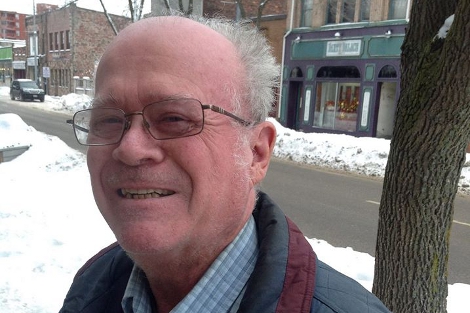 Sault Ste. Marie’s Ray Dawson has agreed to mediation to resolve his complaint against a cop he says obstructed his attempts to attend a local police services board meeting, just as Sudbury prepares to move its police board meetings outside police headquarters to improve transparency.
Sault Ste. Marie’s Ray Dawson has agreed to mediation to resolve his complaint against a cop he says obstructed his attempts to attend a local police services board meeting, just as Sudbury prepares to move its police board meetings outside police headquarters to improve transparency.
The Greater Sudbury Police Services Board voted unanimously this month to hold its meetings starting next month in the more relaxed atmosphere of Tom Davies Square, Sudbury’s city hall.
“Previously, anyone who wanted to attend - including media - had to be escorted into the room,” said Sudbury reporter Darren MacDonald in an article published by NorthernLife.ca.
The Sudbury board will also allow questions from the public, so long as the queries relate to agenda items and are submitted in advance,
“Not sure why we never thought of this before,” police services chair Gerry Lougheed Jr. was quoted as saying. “It really does give us an opportunity for more transparency.”
Bob Keetch, the former Sudbury police inspector recently hired as the Sault’s police chief, and Sault Ste. Marie Police Services Board chair Ian MacKenzie both promised to try to resolve access issues here after Dawson filed a complaint to Ontario’s Office of the Independent Police Review Director (OIPRD).
With limited exceptions, police board meetings must be held in public, but Dawson said a desk officer unreasonably interfered when he asked to attend a November 27 meeting on the high-security second floor of police headquarters on Second Line.
Dawson [shown above] says police board meetings should either be held somewhere else or desk staff should receive training to ensure visitors aren’t illegally obstructed.
After SooToday.com published details of Dawson’s complaint on December 11, Chief Keetch promised: “I will have a representative of this police service present in the lobby in advance of the public portion of the meeting.”
“Any individual interested in attending will be granted access,” the chief told us.
Last week, OIPRD proposed trying to resolve Dawson’s complaint using a pilot mediation process that would involve direct, confidential discussions between Dawson and the desk officer, as well as other police staff who witnessed the encounter.
“I accepted mediation,” Dawson tells SooToday.com.
“If I said no, it would appear that I was hardline…. I didn’t want to appear to be unreasonable.”
A number of conditions must be met before the proposed mediation proceeds, including agreement from the officers to participate.
If Dawson’s complaint can’t be resolved through mediation, it will be handled using OIPRD’s regular procedures.
“If it’s not resolved to my satisfaction, I can always go back to my original complaint,” Dawson, a community activist, said.
Last week, OIPRD advised him that it didn’t have jurisdiction to hear two other Dawson complaints about allegedly illegal closed meetings of the Sault Ste. Marie Police Services Board on April 24 and November 14.
That bothers Dawson, because the Ontario ombudsman handles closed-meeting complaints for a wide range of municipal boards and committees, but is precluded by law from investigating police services boards.
“If the ombudsman can’t deal with it and OIPRD can’t deal with it, who does? There should be someone overseeing the actions of the police board so the public isn’t forced to take them to court to resolve the matter.”
A former cabbie, Dawson wants the police board to force all local taxi companies to prove within one month that they are complying with provincial labour law, especially the minimum-wage requirements.
Cab companies that aren’t obeying the law should lose their licences, he says.
The Police Services Act of Ontario requires that the public be allowed to attend meetings except when:
“Matters involving public security may be disclosed and, having regard to the circumstances, the desirability of avoiding their disclosure in the public interest outweighs the desirability of adhering to the principle that proceedings be open to the public; or
“Intimate financial or personal matters or other matters may be disclosed of such a nature, having regard to the circumstances, that the desirability of avoiding their disclosure in the interest of any person affected or in the public interest outweighs the desirability of adhering to the principle that proceedings be open to the public.”
Previous coverage of this story:
The senior citizen and the big, scary cop
Police chief moves fast on on meeting-security complaints
Police board to meet at Tom Davies Square